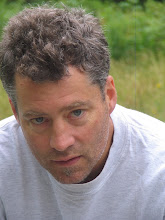 "And as I walked on/ Through troubled times/ My spirit gets so downhearted sometimes/So where are the strong/ And who are the trusted?And where is the harmony, Sweet harmony?"
"And as I walked on/ Through troubled times/ My spirit gets so downhearted sometimes/So where are the strong/ And who are the trusted?And where is the harmony, Sweet harmony?"Last week, in connection to our reading of 1984, I brought up a story I had recently read in the Wilson Quarterly.
Before the fall of the Berlin Wall in East Germany the protest movement, the loose association of individuals opposed to the oppressive communist government, sometimes met in the St. Nicholas Church in Leipzig.
A renowned dissident, looking back on that time and discussing the efforts resist government control, said, “It wasn’t always easy. Once a participant said to me, ‘we shouldn’t give up, because if we do there won’t be any hope at all.’”
At one point there were sometimes only ten people showing up at the Monday evening “Peace Prayers” in the cavernous St. Nicholas Church, most people staying away for fear of being black-balled or fired from a job. These were the strong, and these were the trusted, because they kept their eyes on a still-living beautiful thing—spiritual freedom and individual truth.
But people kept coming. And by 1988, attendance had grown to 600. “The church was the one space someone could express themselves,” said the dissident. We had a monopoly on freedom, physically and spiritually.”
In 1984, Winston imagines the Proles expressing their collective power to overthrow Big Brother’s government. The problem, he realizes, is that the Proles exhibit no hunger for complex intellectual considerations: the Proles' concerns revolve around gambling, football, and pints of sour beer. They do not care about politics, poetry, philosophy, or truth. Winston is alone with his thoughts, his hopes, and dreams. He has no one with whom to talk agree, share ideas, or feel his feelings. This aloneness and entrapment in the cell of his own thought, is part of the terror and tragedy of “comrades” like Winston. And it leads to his despair—that he could be in a world where no one can be trusted.
Winston then discovers an antique, a glass paper-weight, which serves no purpose, except for one thing: "It’s beautiful," he says. The shopkeeper, Mr. Charrington, replies, “It is beautiful.” Finally, for the first time, Winston has someone who can reflect to him his deepest feelings and impulses. This is the dialogue of trust. For Winston, Mr. Charrington is a kindred soul, a man with a connection to beauty and a hunger to preserve the past, and this lifts Winston to such heights of light-heartedness that he begins to hum a song and forgets to check for the thought police.
This longing for beauty, this hunger to share it, to touch it—he is looking at the world, and seeing textures than what he knew before. Before he knew the stink of cabbage, the sour smell of beer, the clogged drains. The red coral encased in the paper-weight reminds Winston of the beauty he wants but has yet to touch, the truth that absolute beauty does exist This is a great turning point in his own inner revolution and reminded us all, in our little school, of the great blessing it is to have freedom of expression and thought, to be able to move towards what we feel is beautiful in us and around us, to have a space of spiritual and physical autonomy.
But when we are angry, our vision of what is beautiful is obscured. I see this again and again: when anger, disgruntlement, or confusion, or the feelings which breed those surface feelings, are coursing through the classroom, it is difficult for us to apprehend beauty or complex ideas. We become unable to see, listen, or speak. The natural joyous agitation becomes muted and stilted, sometimes deadening.
So we always try to make the school be a place to create, or discover, or say what beauty is and express it freely. Sometimes, of course, we run into difficult strands that have to be untangled. This is our work. Being a seer means looking at the good, the bad and the ugly in ourselves, and not only what pleases or comforts. It is always complex, no matter how much we try to simplify what we do.
Thoreau said: “Will you be a student merely, or a seer?” We spent some of the week talking about how we see, what we gather in from our direct observations. We did this for character sketches, and on Thursday we did the same thing, but this time for drawings. We went out into the woods to collect some leaves and stems and then came inside to study them and then to try to draw what we saw, or felt, in the looking. We are working toward the time when we will be able to see as much in the veins of a leaf or the delicate hairs on a beech tree stem or our own thoughts as Winston sees in the coral; toward the time when we become like those who could listen to the song of a thrush and understand the volumes there filling up the branches above us. Then we will truly be seers.

No comments:
Post a Comment